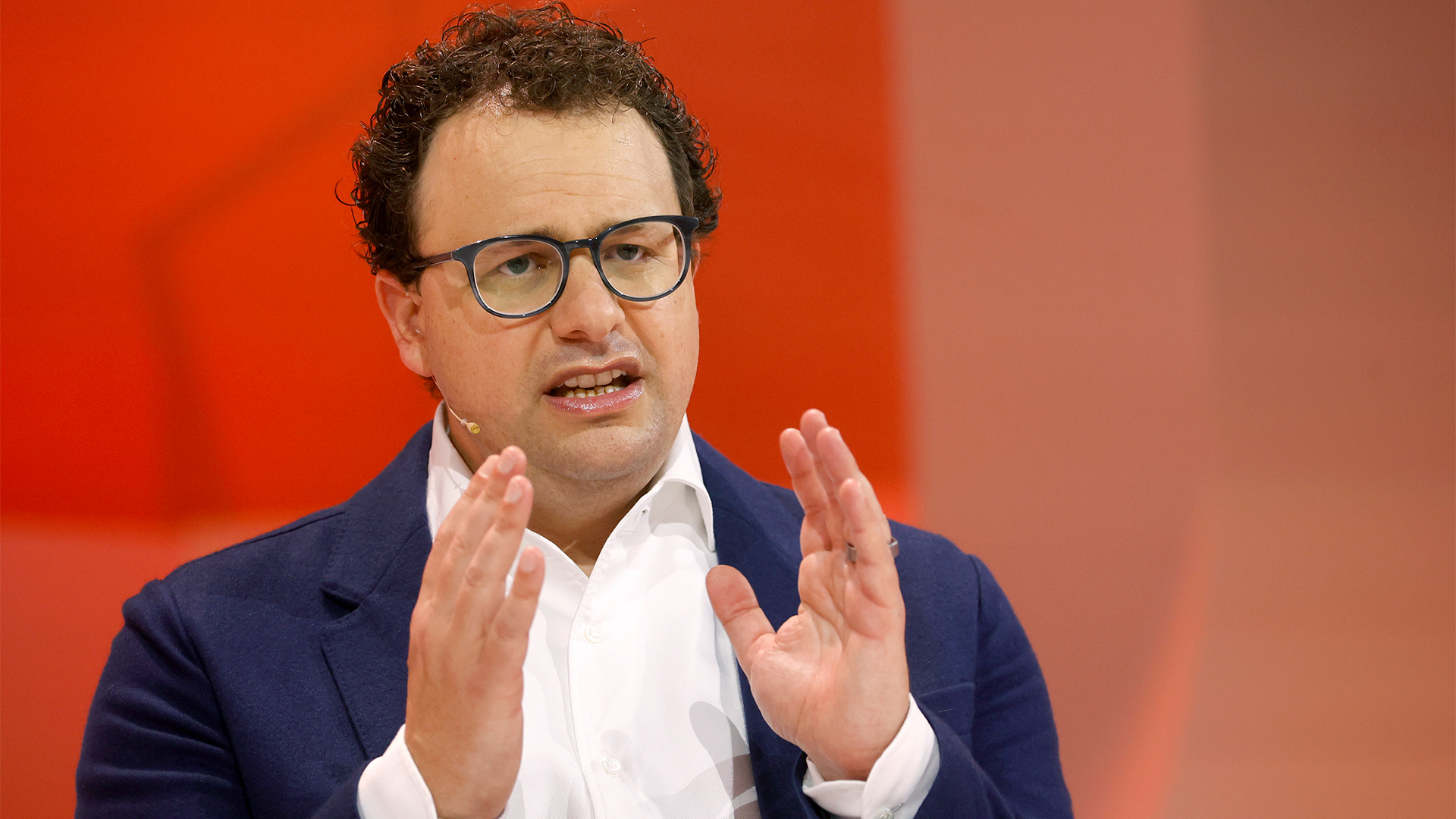LGBTQ+ founders face fierce challenges raising capital, but what’s being done about it?
Despite great strides being made to improve diversity throughout the tech industry, LGBTQ+ startup founders still face roadblocks


Raising investment as a startup founder can often be an arduous and stressful process fraught with challenges. But for founders in the LGBTQ+ community, this challenge is exacerbated by long-standing issues around visibility, openness, and, on occasion, instances of discrimination.
LGBTQ+ founders face a myriad of hurdles when raising venture capital, with founders from the community raising 16% less on average compared to their counterparts, according to US industry analysis from the StartOut Index. StartOut statistics also show less than 1% of more than $2 trillion in venture capital has gone to entrepreneurs and founders from the community. This comes despite the fact that, across the country, 7.1% of the population identifies at LGBTQ+.

These rates highlight a significant disparity between LGBTQ+ founders and their counterparts outwith the community, and raises questions over why many find it so difficult.
A key factor in this, research shows, is due to long-standing cultural issues and a lack of visibility and awareness of the challenges faced by founders from what is a growing – yet traditionally marginalized – social demographic.
LGBTQ+ founders often ‘conceal their identities’
A major issue faced by founders from the LGBTQ+ community lies in perception, research shows. Earlier this year, a study from Proud Ventures found nearly one-quarter of startup founders believe disclosing their sexual or gender identity could “pose disadvantages” when seeking investment. The LGBTQ+ Founder report suggested 18% of founders think their identity may negatively impact fundraising attempts, while 27% believe their identity could create a “general disadvantage” during the process.
This culture of concealment isn’t restricted to startup founders from the LGBTQ+ community either. The study revealed that investors in the VC space also frequently withhold their identity from colleagues, which Proud Ventures said merely exacerbates visibility issues and adversely affects founders.
Christian Tooley, CEO at i3 Investing, a UK-based angel syndicate which specializes in supporting LGBTQ+ founders, tells ITPro concealment is, unfortunately, a common tactic among many founders from the community.
Sign up today and you will receive a free copy of our Future Focus 2025 report - the leading guidance on AI, cybersecurity and other IT challenges as per 700+ senior executives
RELATED RESOURCE

Enable greater security for your team with pre-emptive measures and virtual patches
DOWNLOAD NOW
“They often conceal their identity and do not conform to certain ‘norms’ within investor circles - often reinforced by affinity bias,” he says. “Their identity should be seen as a positive, bringing unique life experiences and a level of grit and empathy that enhances their ability to build great businesses.”
Discrimination against LGBTQ+ founders was found to be a lingering issue, according to Proud ventures. Citing examples of discrimination, the firm’s study highlighted a specific incident where a bisexual founder was the victim of abusive slurs from an investor who subsequently backed out of a deal.
Intersectionality and diversity as box-ticking
A frequently unacknowledged element of LGBTQ+ funding disparities also centers around the “intersection of sexuality and other identities”, Tooley adds. This reflects analysis from Proud Ventures showing gay founders raised a median of 2.25 times more than bisexual founders. Similarly, the disparity with lesbian founders is even more jarring, with gay men raising 22 times more.

“Within the LGBTQ+ community, it is often the most privileged that still get funding. StartOut in the US has data showing that queer men still get more funding than queer women, showing the intersection of gender and sexuality.”
Tooley also notes a pervasive culture of diversity-related ‘box ticking’ in some investor circles is also an issue that must be addressed. All too often, he says, investing in LGBTQ+ founders is still seen as a “one-time investment to diversify a portfolio and tick some ESG boxes”.
While Tooley says there has been a degree of improvement in this regard, there is still a long way to go. “There is greater awareness of this identity - and the underestimated nature of these founders- but it is still few and far between. Without queer voices on your IC, and without engaging with local communities and initiatives, you will not find or understand these founders’ experiences.”
How can LGBTQ+ founders be supported?
Although VC investors told Proud Ventures that they are taking “proactive steps” to address funding disparities and cultural barriers for LGBTQ+ founders, the report notes that there is still vast room for improvement on this front.
A key recommendation was that VC firms should place a “stronger focus on hiring more diverse investment teams” to create a more welcoming environment for founders from this community.
Across the tech industry, other efforts are being made to raise awareness of LGBTQ+ founders and companies. In June, for example, Crunchbase unveiled the launch of new LGBTQ+ ‘diversity spotlight tags’ which aim to improve visibility for founders in the community.

The ‘LGBTQ+ led’ and LGBTQ+ founded’ tags were specifically launched to “help close the inequity gap” for the community, and builds on several years of work with diversity tags at the organization.
Long-term, Tooley believes that a stronger focus on ‘intersectional investing’ and ‘queer investing’ may prompt closer ties between LGBTQ+ founders and the investor community – a drive i3 has been passionate about for some time. This will ensure that investors “have access to the innovation from these founders in our community” and maximize exposure and awareness for founders.

Ross Kelly is ITPro's News & Analysis Editor, responsible for leading the brand's news output and in-depth reporting on the latest stories from across the business technology landscape. Ross was previously a Staff Writer, during which time he developed a keen interest in cyber security, business leadership, and emerging technologies.
He graduated from Edinburgh Napier University in 2016 with a BA (Hons) in Journalism, and joined ITPro in 2022 after four years working in technology conference research.
For news pitches, you can contact Ross at ross.kelly@futurenet.com, or on Twitter and LinkedIn.
-
 Microsoft unveils Maia 200 accelerator, claiming better performance per dollar than Amazon and Google
Microsoft unveils Maia 200 accelerator, claiming better performance per dollar than Amazon and GoogleNews The launch of Microsoft’s second-generation silicon solidifies its mission to scale AI workloads and directly control more of its infrastructure
-
 Infosys expands Swiss footprint with new Zurich office
Infosys expands Swiss footprint with new Zurich officeNews The firm has relocated its Swiss headquarters to support partners delivering AI-led digital transformation
-
 Microsoft and Nvidia are teaming up again to support UK startups
Microsoft and Nvidia are teaming up again to support UK startupsNews Agentic Launchpad will offer participants AI expertise, training and networking, and marketing support
-
 ‘The AI boom has fueled a wave of overfunded startups that look healthy on the surface’: Cash is flowing into AI startups, but investors have warned of the rise of ‘zombiecorns’ as companies struggle with revenue growth
‘The AI boom has fueled a wave of overfunded startups that look healthy on the surface’: Cash is flowing into AI startups, but investors have warned of the rise of ‘zombiecorns’ as companies struggle with revenue growthNews Investors are growing concerned about the rise of 'zombiecorns' in the AI startup space
-
 Why the UK keeps losing promising startups
Why the UK keeps losing promising startupsNews The House of Lords Communications and Digital Committee has warned the UK risks losing top startups due to too much red tape.
-
 This startup wants to simplify AI adoption through a single “orchestration” platform – and it includes access to popular models from Meta, OpenAI, and Anthropic
This startup wants to simplify AI adoption through a single “orchestration” platform – and it includes access to popular models from Meta, OpenAI, and AnthropicNews Nexos.ai wants to speed things up for enterprises struggling with AI adoption
-
 Why today’s economic turmoil will build stronger startups tomorrow
Why today’s economic turmoil will build stronger startups tomorrowIn-depth Challenging economic conditions mean startups need to be more conscious of cash flow and burn rate than ever before
-
 CrowdStrike to acquire application security management startup Bionic
CrowdStrike to acquire application security management startup BionicNews Bionic ASPM will be available as an independent offering and as part of CrowdStrike’s Falcon Cloud Security
-
 The best alternatives to VC funding for startup businesses
The best alternatives to VC funding for startup businessesFeature VC funding has traditionally been a source of money for tech startups, but what other options are available?